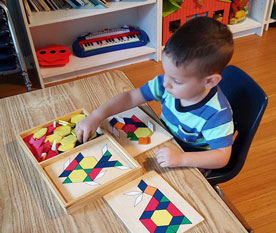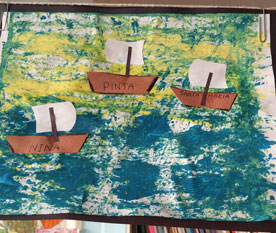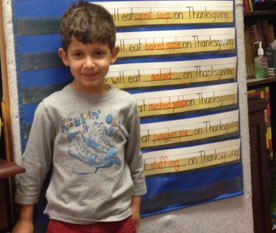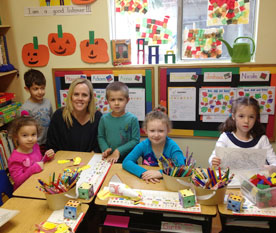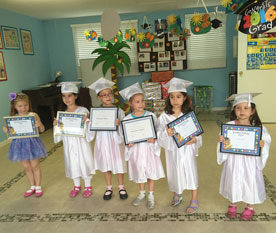Our Program
Think about what you really want for your child and what kind a life you expect them to lead.”
Toddler activities and exercises recognize that children learn by doing. Developmental materials are always accessible, safe, and geared for a child’s success. Activities are changed regularly in response to children’s need for variety and challenge as they grow and learn. The safe, loving, gentle atmosphere puts children and parents at ease and makes for a trusting, spontaneous transition to preschool.
Our preschool program emphasizes the most important aspects of early childhood development:
1. Fine and Gross Motor Skills
Before any kind of psychological or intellectual growth, a child needs to be healthy, and the basis of that health is physical activity.
Young children have to master both the gross motor skills, like coordination of hands and feet, and the fine motor skills. We engage them in a range of activities to help with both.
- A large back yard gives them space to run around and jump, as well as play on the swings. Children also can ride around on bicycles and pull wagons. Dancing class twice a week and yoga are part of the program.
- Inside the rooms, fine motor skills are used ever-changing selection of art and creative activities, in paper shredding and gluing projects, coloring and painting using various media, play dough and kinetic sand, and musical numbers to which children clap, move their fingers, and stomp their feet
2. Language Development
Language to children is more than expression of thoughts and feelings – it is a means of making sense of the world around them. But language isn’t learned on its own – it must be carefully practiced and nurtured by the adults around.
3. Intellectual Growth
What seem like random movements to adults are a lot of times a child’s way of experimenting with the world around them. Cause and effect, action and reaction, all these things are endlessly fascinating to young minds. We do a lot to encourage this curiosity about the natural world. Our activities can introduce simple science to children from their earliest age.
4. Social Awareness
Children begin life focused only on themselves, but by around age three start interacting with peers. The shape of those interactions profoundly influences not only emotional well-being, but also the ability to learn and develop intellectually. We treat the development of personality not a lesson, but a continual, ongoing process.
5. Emotions
By their early childhood years children begin to realize their emotional states and recognize the emotions of others. Their inner feelings largely affect the way they interact with the outside world.
In addition to the IQ – intelligence quotient – of highly successful children, we consider equally important their EQ – emotional quotient. We devote a lot of attention to fostering a balanced, positive childhood.
Kindergarten is a pivotal time for children. It marks the beginning of independence and prepares them for adult life. By this age they typically know how to read, understand the concepts of numbers, and can express their thoughts and desires.
Our enriched Transitional Kindergarten program helps to further every phase your child’s development, from the emotional to physical to intellectual.
